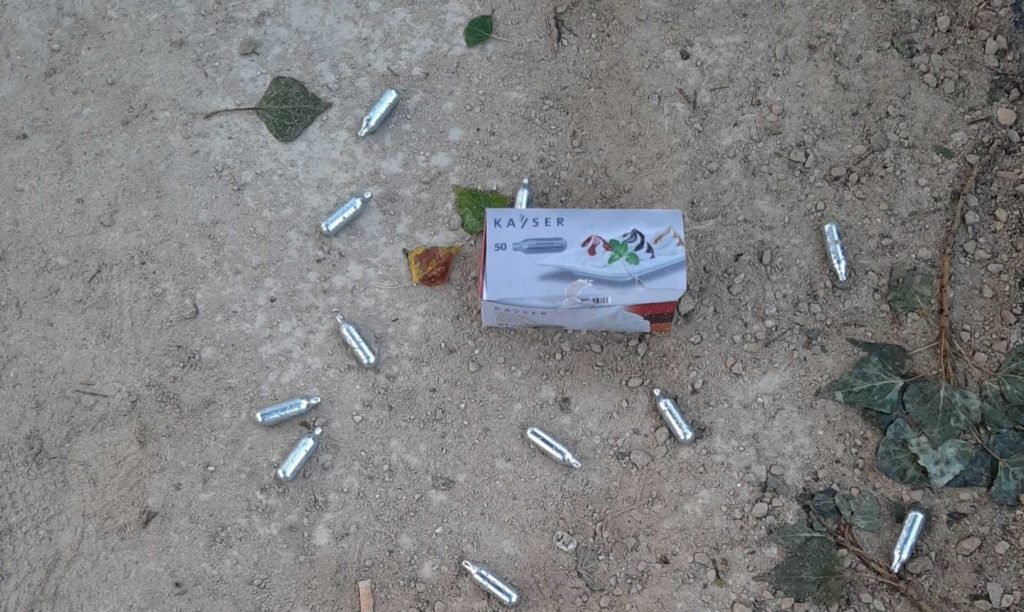Possession or recreational use of laughing gas will is on track to be prohibited throughout the entire Brussels-Capital Region, Brussels Mayor Philippe Close (PS) announced on Monday to the Brussels city council.
"The text of the Common Police Regulations was already approved by the College of the City of Brussels on 9 January 2020," Close explained.
It "will be submitted to the Police Committee for review on 18 February, before being voted on by the municipal council at the end of February or early March," Close added.
If the text moves past the various stages successfully and without delay, the ban on laughing gas is expected to come into force on 1 April 2020. At this point, the ban will be incorporated into police regulations for all of the nineteen Brussels municipalities, Nieuwsblad explains.
The announcement by Close came in response to a question by city councillor Mourad Mourad Maimouni (PS), who also questioned whether or not schools in Brussels would take some responsibility for both the rise in use of the substance amongst youths as well as the dangers that come with using it.
Close assured Maimouni that preventative work would take place in youth centres, amongst other places.
Related News
- Another Brussels municipality approves immediate ban on laughing gas
- Brussels authorities look to limit laughing gas sales
- Laughing gas banned in Brussels municipality
- 'Laughing gas fines' rolled out in Flanders as doctors warn of dangers of recreational drug
This news comes as Mechelen, Comines-Warneton, Saint-Josse-ten-Noode and Koekelberg have all already prohibited the use of laughing gas at different stages throughout 2019.
Back in September of last year, Flemish doctors raised the alarm about a surge in laughing gas-related hospital admissions and the growing number of young people being treated for chronic problems caused by the recreational use of nitrous oxide.
Nitrous oxide’s euphoric and sometimes hallucinogenic effects have earned it numerous nicknames, including laughing gas, epiphany drug or hippy crack. Use of the product continues to grow in popularity in Belgium, especially by teenagers, despite efforts to curb the trend.
Evie McCullough
The Brussels Times

